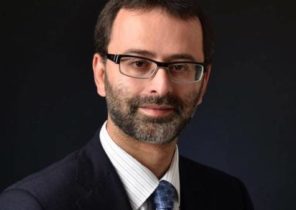According to the organization Freedom House, freedom in the world in 2016, declined what’s happening for 11 years in a row. In the years there have been a crushing failure of the “Arab spring” and the sad return of Russia and other States of the former Soviet Union to dictatorship. Russia, China and Iran are acting in their own regions all the more harshly and aggressively. And in Europe, the growing influence of illiberal populist parties (about 40 parties of various stripes), along with the new ardent nationalism in the United States. In General, it is hard to resist at least the question of whether democracy is an endangered species.
For Americans, democracy is a given. But for the rest of the world it is a fairly recent invention — a creation of the last two centuries. This is a fairly short period of recorded history — it’s shorter, whom the Ming or the song in China or various other dynasties in other countries, which appear in the memory just as a simple flash. It is possible that this democratic moment is just a new stage.
Initial experiments with democracy in Ancient Greece and Rome disappeared. And this form of government essentially returned only two of the Millennium, with the birth of the American Republic. Abraham Lincoln in his speech at Gettysburg said that the civil war “will decide whether to resist this nation or any nation similar to it by birth or by vocation.” In XX century communism, Nazism and fascism was to the democratic world a huge threat not only on the battlefields but also in the field of ideology, offering a model of organization of society, which, in the opinion of many, superior to democracy.
Thanks to successive victories over these enemies the rise of democracy, it seemed, was assured. Francis Fukuyama (Francis Fukuyama) noted that the victory of the West in the cold war was tantamount to the “end of history”, that is, a dispute about what form of social organization is better solved once and for all. All countries which at that time still did not accept liberal democracy, still moving in this direction, he wrote.
Another political scientist, Samuel Huntington (Samuel Huntington), in his work “the Third wave. Democratization in the late twentieth century” (The Third Wave) used a different approach. He argued that democracy is moving steadily forward and comes in waves, rising and fading. The first wave began in the USA when America was a young country that rose with the end of the First world war and the transformation of European empires into independent, democratic state, and then fell down in the 1920-ies, when the majority of these States has turned into dictatorship. The second wave began after world war II with the liberation of Asian and African colonies, but it also damped out when the newly created democracy fell one after another under conditions of authoritarian rule. The third wave began in 1974 with the democratization of Portugal, followed by other countries of southern Europe, then Latin America, and then — abruptly and dramatically — and the countries of the Soviet bloc. When Huntington wrote about this, this wave has not yet risen, but it happened in the beginning of the XXI century, when, as noted by Freedom House, almost two-thirds of countries have become “electoral democracies”, and a record 45% of countries began to meet more stringent criteria of this group, and they can be attributed to the number of “free countries”.
Since then, the level of democracy and freedoms is gradually reduced. While the fall slightly, but the totality of events and trends indicates that may be followed by a sharp drop. After each decay of the first two democratic waves, the number of democracies in the world dropped dramatically. How many democratic countries can disappear and how much can remain after attenuation of the third wave? Since the rise of the third wave was higher than in the first two cases, the number of countries that will survive the fall, maybe more. But for the same reason, a fall from this height may be even more pronounced that would overshadow the lives of hundreds of millions of people, would reshape international relations and change the place of America in the world.
***
How is this even possible? First, in this new century, we have witnessed some serious disappointments of the Democrats. At some point the “Arab spring” of 2011 instilled hope that there will be significant democratic changes in the region, which to the penetration of this democracy was the most stable. But only one small country, Tunisia has become more democratic, and a few other went in the opposite direction — either because cautious and “vigilant” (Saudi Arabia, Bahrain, Kuwait and other countries) “tighten the screws”, or because the country disintegrated into feuding military factions (as in Syria, Libya and Yemen). Another bitter disappointment was the former Soviet Union, which in 1991 broke up into 15 independent States, each of which hold elections and create democratic institutions. Today only six of them are democratic States, of which half is not very stable, in others again ruled by dictators — including some of the most repressive in the world.
In other parts of the world the retreat from democratic principles has occurred in the core countries, which may affect their neighbors. For example, Turkey, despite the imperfection of its democratic institutions, for decades, was an example of democracy in the Muslim world, especially its main centre in the middle East. Now how Recep Tayyip Erdogan has seized dictatorial power, will convince many that democracy and Islam are incompatible. In Hungary, the curtailment of freedoms is inspiring similar actions in other countries of the former Eastern bloc. If you do not stop the actions taken recently by the government of Viktor Orban (Viktor Orban) to close the Central European University in Budapest (which since its Foundation in 1991 was a symbol of democratic reforms and Western models of education and research), they can have a negative impact in the region. Hugo Chavez (Hugo Chávez) has destroyed democracy in Venezuela and has inspired “copycats”, which, although not destroyed, but weakened democracy in several other Latin American countries. Other madcap and unpredictable authoritarian leaders who came to power through elections in the Philippines and South Africa — are able to exert the same influence in their regions and their own countries.
The effect is often not just is an example, but also manifested more significantly. Three aggressive dictatorial regime — Russia, China and Iran, increasingly, their influence on neighboring countries.
Russian President Vladimir Putin, suppressing all that is left of post-Communist democratization, and typing one-man rule, has invaded two former Soviet republics — Georgia and Ukraine — and uses economic leverage and dirty tricks to crush democracy in other countries. He, of course, aims to do the same in those countries that are democratic, but he doesn’t stop. It “feeds” anti-democratic forces in the former States of the Soviet bloc (Russian influence in media and politics is growing in the Czech Republic, which was once a model for democratic development in Central Europe). The same thing it does in Western Europe — the leader of the presidential race in France, marine Le Pen (Marine Le Pen) recently made a pilgrimage to Moscow, which is allegedly funded her party and others like her. Putin even begins to restore Russian influence in the middle East in the hope to once again make their country a world power. Similarly, Chinese President XI Jinping (Xi Jinping), breaking and reversing of the observed four decades, the trend towards liberalization, actively pursuing a policy of frightening military buildup, demonstrating the power of China in the neighbouring seas. And Iran, strangled advocated the democratization of the Green movement, which emerged after the dubious 2009 presidential election, have achieved dominance in Lebanon and in large areas of Syria and has considerable influence in Iraq and Yemen. All of those are steps towards self-proclaimed goals of Tehran, consisting of regional domination.
This destructive activity all the more dangerous, given the US refusal to act in the opposite direction. The United States is the most influential country in the modern world. They contributed to the development of democracy as passive (speaking as a model), and actively — through its diplomatic activities, assisting and even military action, conducting training and covert operations. But President Barack Obama came to power with the goal to eliminate those “extremes” that occurred under President George Bush (George Bush), who sought to impose democracy in Iraq and, apparently, the entire Middle East. Obama believed that America should show more restraint and extreme caution in imposing on others our beliefs. Fear of neo-imperialism, he did not respond to calls more strongly to oppose the demands for power from Iran and Russia.
President trump has a policy in the same direction as Obama, but only goes further. This week he congratulated the President of Turkey with the “liquidation” of the Parliament and the consolidation of power against the opposition. His nationalism based on the principle of “America first”, focused not so much on how we can influence the world, and that we can from this world to. His moral relativism against Russia implies a complete indifference to the behavior of foreign States, if at stake commercial interests. He recently made a couple of additional exceptions that other countries should not “to kill with gas babies” or to threaten America’s Intercontinental nuclear missiles. His list is still sorely lacking issues concerning the interests and spheres of influence of the United States. When, in February Trump during an interview said that Putin is a killer, he replied: “There are a lot of killers. Do you think our country is so innocent?”. Theorists of foreign policy, who had gathered under the banner of trump, trying hard to downplay or cast doubt on America’s role in spreading democracy.
Despite the recent sharp change of position (the Alliance is no longer “legacy” organizations, he said this month), trump belittled NATO’s role, welcomed Brakcet and fully supported by European politicians seeking to weaken or abolish the European Union. Given that the basis of his international interests, apparently, are the economy and trade, and given the fact that his obvious point is that international relations are a zero-sum (in which America loses), to welcome the collapse of the EU is appropriate.
But it is here that the danger of collapse of democracy is the biggest problem. Western Europe was not only the main U.S. allies in the cold war and the war against terrorism, they are as stable, advanced and successful countries are also the other major cornerstone of the democratic world. Young democracies Central and Eastern Europe two decades ago was perceived as a source of inspiration for more Mature, established West. Today, there is reason to fear for the stability and reliability of the democratic countries of Europe (both Eastern and Western).
Many of these countries are between two fires. On the one hand, they suffer from a dramatic increase in the number of immigrants and refugees from predominantly Muslim countries, which sometimes have little attachment to their new “homeland” and its democratic institutions. On the other hand, anti-immigrant sentiment spreading populist parties — those parties, which are themselves unreliable and ambiguous in its commitment to democratic values and institutions. In each country the situation is different, but at the heart of European populism are and various other factors, including low growth and high unemployment among young people in the South of the continent; the dissatisfaction of the electorate with Brussels on the issues of law and sovereignty; the fear of terrorism and discontent with globalization and free trade. Of course, the main problem is not that citizens speak out and Express concern in a number of areas. The threat lies in how this is used by populist leaders. “Populists consider themselves the only “true” representatives of “true people,” says Jan-Werner Muller (Jan-Werner Mueller) from Princeton University. And the media, the courts and even the universities can be perceived as “enemies of the people””.
And it’s all so simple or in the near future will not disappear. It is possible that during the elections in France marine Le Pen will eventually lose in the second round vote in may. But her populist party “national front” will almost certainly get more votes than last time. The German party “Alternative for Germany”, according to the survey, is now supported by only 8% of voters — compared to 15% at the beginning of this year. However, right-wing populists are now in place in 10 of the 16 land parliaments (landtags) of Germany and almost certainly will take place in the Bundestag in the General election in September.
Not yet the end of the world. But if today the EU will collapse, wait for the surge of protectionism, illiberal nationalism and anti-American sentiment in individual countries across the continent. We can expect even more of Russia’s aggressive actions in Europe to support anti-democratic forces. Moscow is not the source of any of these adverse trends, but it has demonstrated all of these trends to support and facilitate their formation.
***
Scientists Stephen Roberto FOA (Roberto Stefan Foa) and Yasha Munch (Yascha Mounk) has recently questioned the established view in political science according to which democracy in economically developed countries, you cannot cancel or stop its development. Academically speaking, countries where the change of power took place peacefully through elections two or more times, and which exceed a certain level of income considered “consolidated”, the established democracy. Such countries have never regressed back to authoritarianism. But FOA and Munch held a number of sociological studies showing that among the public in Europe and in the United States has the unprecedented decline in commitment to democratic norms — and even frustration in them. They wonder whether democracy in some of these countries in the process of “deconsolidation”.
In our opinion, American democracy is strong enough to counter this trend and even the coming to power of unpredictable and eccentric President. We are more concerned with the question, not accelerate global anti-democratic trends of the past decade because of the failure of America from its historic role of sample and defender of democracy. Shocking behaviour trump already weakened America’s influence as an example of democracy. Now many in the world look at us with admiration and with wonder and horror. The next question is whether we are in its activities in the field of diplomacy, trade and foreign aid to consider democracy an important value — or all of these actions we shall be guided by such considerations as the result of the transaction and the satisfaction of their own ego. Impulsive actions of the President in order to destabilize Mexico, to appease Russia and to congratulate Turkey anything is good in this regard, do not promise.
America’s unwillingness to support democracy can exacerbate a variety of anti-democratic trends which we have described, and lead to the extinction of the “third wave” of Huntington. This decline can lead to the disappearance of many of the newly created democracies in developing countries and the countries of the former Soviet Empire, and may even undermine the democratic foundations in other parts of Europe.
So what? Trump says he wants only to put “first America.” And why we should be concerned about the development of democracy somewhere else? The answer lies in the fact that the less democratic the world will be a world less stable. There will be more conflict, it will spawn more terrorism and less friendly towards the United States. Team members trump is not the first Americans who want to avoid the “foreign wars”, but again and again we find ourselves caught up in these wars, as if it resisted.
Due to a number of events of the present time is dangerous. As a result of the failure of America’s leadership, its commitment to the ideals and generous, noble action for the sake of politics narrow and short term interests and personal gain this time will be even more dangerous — in particular, for America itself.







